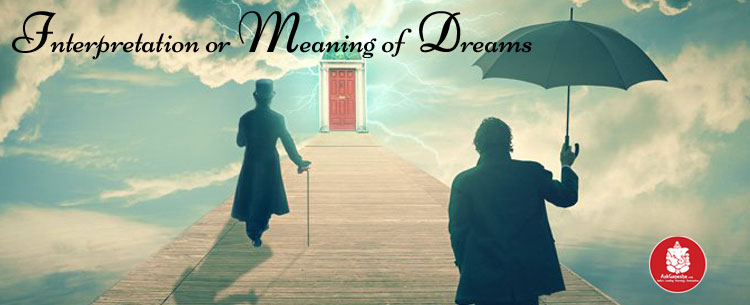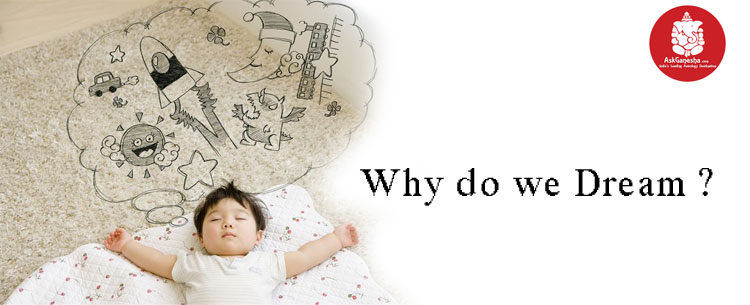Dream What are dreams? It is difficult to give a definite definition to dreams. Dreams are normally the communications from our subconscious mind. It can be said that dreams are images, stories and description that our mind creates while we sleep. Sometimes dreams are not what we want them to be, or they are unpleasant that is why we remember them, whatever the reason be we all dream at some point or other. These dreams they are the escape route from reality into a world of fantasies and parallel universe where everything is normal. Dreams are meant to create a world that is distinct from real world. A dream world is place where everything is right and according to us.
Interpretation or meaning of Dreams:
Dream interpretation in lay mans term means assigning the meaning to our dreams. Associating meaning s to dreams has been a practice that was followed by the Ancient Romans and Greeks. At those times dreaming was processes considered as the supernatural communication from Divine. And these dreams were interpreted by specialist associated with people having spiritual powers. In the modern times, the place has been taken by the psychologists or dream researchers. According to Sigmund Freud dreams are nothing but brains activities while we are asleep. Every dream has different components, and different symbols and these symbols define that dream. Our thoughts determine our dreams. And our thoughts can be interpreted as we perceive them.
Do you know? (Fun facts about dreams):
- We all dream, but we might not be able to remember our dreams. Hence it is said that every one dreams around 3 6 times a night. These dreams can be straight forward like meeting with a long lost friend, or hitting a jackpot, sometimes its unpleasant. The bottom line is dreams are seen by everyone.
- While we sleep, we dream. All the dreams that appear all can be interpreted or linked with some sort of interpretation. It is believed that everyone from 90 to more than two hours dream. It is believed that each dream lasts from 5 to 20 minutes.
- Normally dreams are forgotten once we get out of our beds, dreams helps you develop long term memories. It is believed that blind people dont dream, like the normal people, but they rather use their sensory components to dream.
- Sometimes our desires, thoughts and actions are converted into the dreams that occur during our sleep. Sometimes, fear and some sort of lurking shadows and chasing dreams are seen, all these dreams have different meaning and can be interpreted differently.
- There are some reoccurring dreams, those dreams that occur as frequently as every second night to a weak a month and even a year. Hence dream researcher and analysts believe that recurring dreams or reoccurring dreams have some sort of hidden message to convey, the key here is to identify the message and interpret it as per our convenience.
Why do we Dream?
The reasons are unclear and the research is ongoing, the researchers believe that: Dreams are a way to sort out everything that it collects throughout the day. Hence during our sleep the brain plays the role of a sieve through which all the information that is useful and the brain wants to hold on to is seen at the top and the rest of the unwanted material is sieved to the bottom. Hence some researchers believe that dreams play the exact same role that of a sieve. Another theory is that the dreams represent our hidden emotions, since throughout the day the brain is busy making connection and busy doing its work that it does not get time to address to the emotions; these are addressed and dealt with while we sleep.
Some researchers believes that since everything slows down during night, and we are not suppose to focus on anything at night, so all the emotions that were hidden during the day finds its true speed and occurrence at night. If something on mind is heavily weighing the chances are that the dream will be about the same problem specifically. Some believe that the dreams are a part of mere expansion of our waking consciousness; they reflect the experience of our waking life. According to Jim Pagel, MD, Director of the Sleep Disorders Centre of Southern Colorado, "If dreaming has an actual function, it really supports why we spend a third of our lives sleeping. For now, we will have to be content with simply enjoying the show our brain puts on for us each night.

























 Translate
Translate